I mean just out and out crooks. And the next generation had a little more finesse. But I mean those first wave of people, you know, definitely would take all your money, no doubt about it.
AL KOOPERThe first generation from the ’50s that were in 1650 [Broadway] were pretty much all crooks,
More Al Kooper Quotes
-





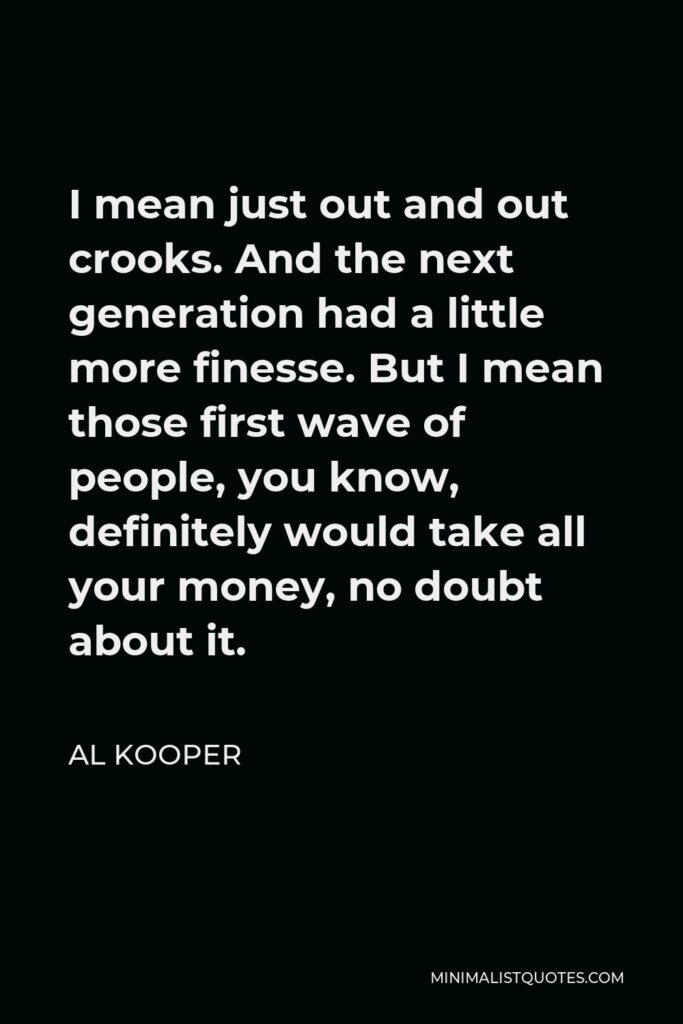

-





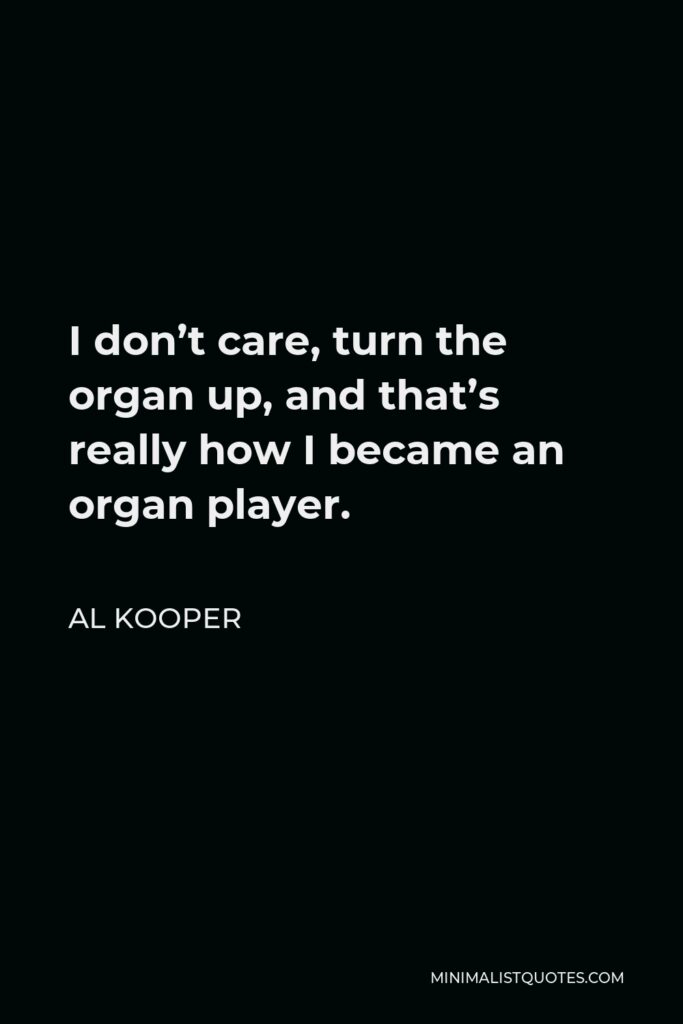

I don’t care, turn the organ up, and that’s really how I became an organ player.
AL KOOPER -





![Al Kooper Quote - The [Bob] Dylan sessions were very disorganized, to say the least. I mean, the “Like A Rolling Stone” session I was invited by the producer to watch.](https://minimalistquotes.com/wp-content/uploads/2022/07/the-bob-dylan-sessions-were-very-disorganized-to-s-683x1024.jpg)

The [Bob] Dylan sessions were very disorganized, to say the least. I mean, the “Like A Rolling Stone” session I was invited by the producer to watch.
AL KOOPER -





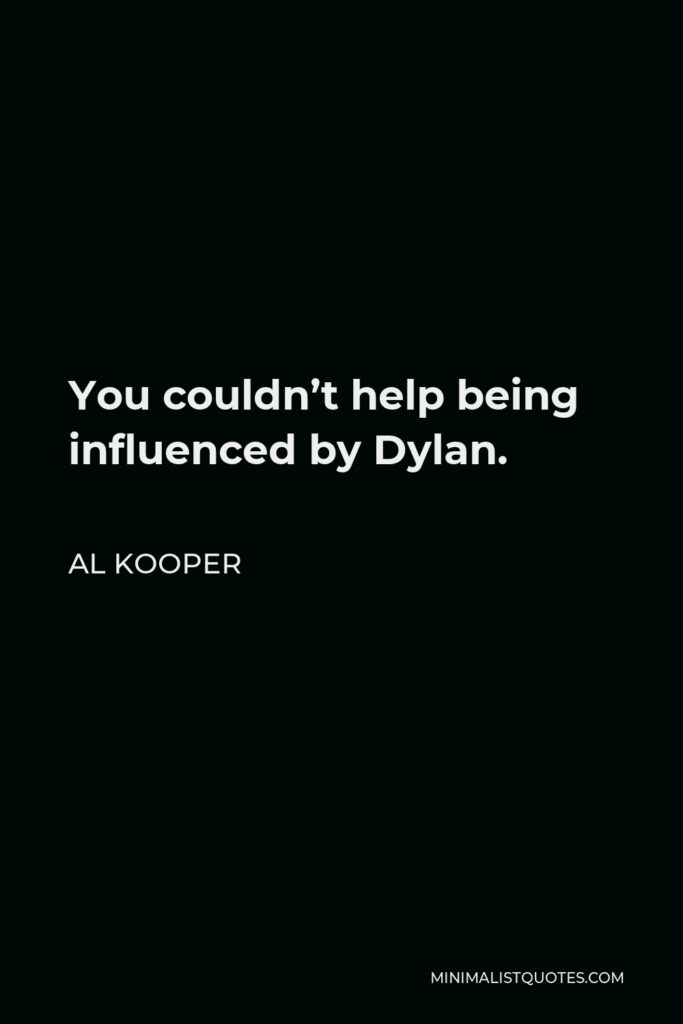

You couldn’t help being influenced by Dylan.
AL KOOPER -





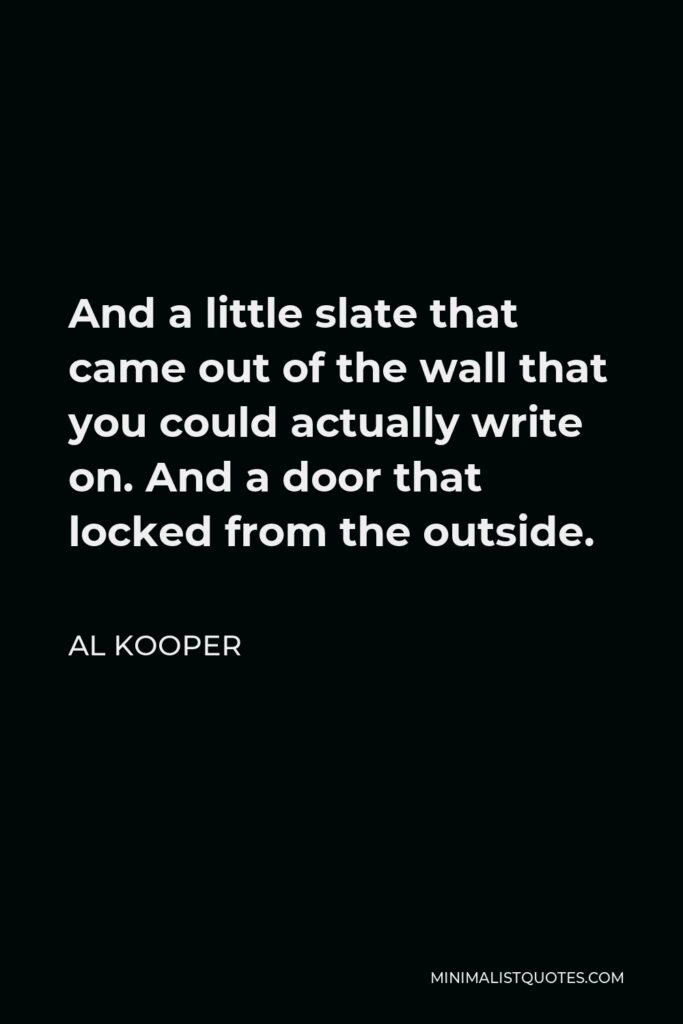

And a little slate that came out of the wall that you could actually write on. And a door that locked from the outside.
AL KOOPER -





![Al Kooper Quote - The first generation from the ’50s that were in 1650 [Broadway] were pretty much all crooks,](https://minimalistquotes.com/wp-content/uploads/2022/07/the-first-generation-from-the-50s-that-were-in-165-683x1024.jpg)

The first generation from the ’50s that were in 1650 [Broadway] were pretty much all crooks,
AL KOOPER -





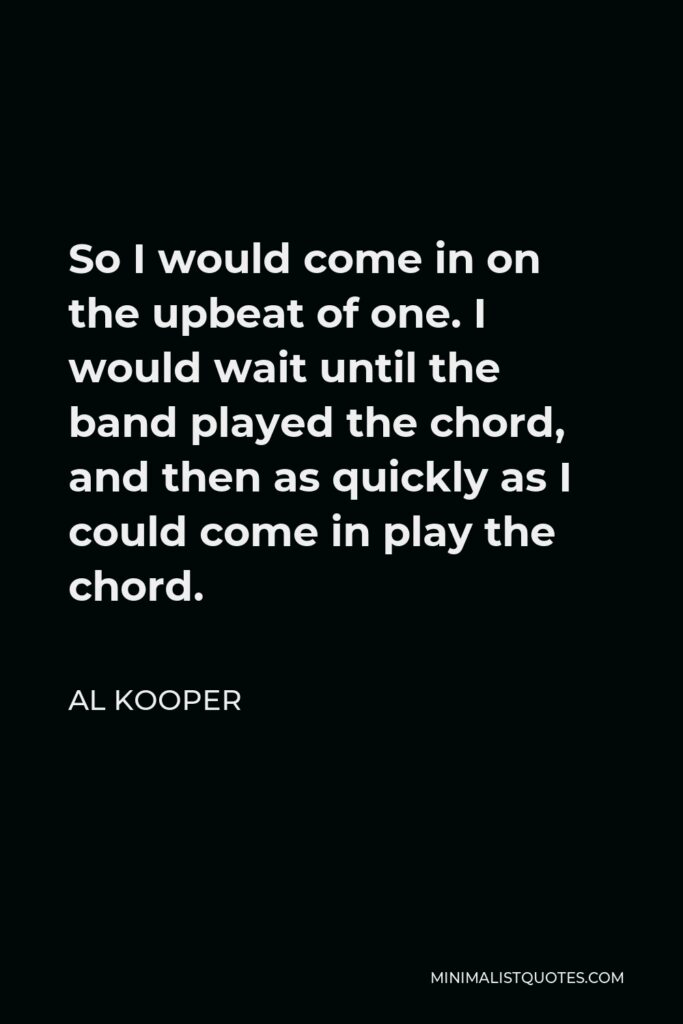

So I would come in on the upbeat of one. I would wait until the band played the chord, and then as quickly as I could come in play the chord.
AL KOOPER -





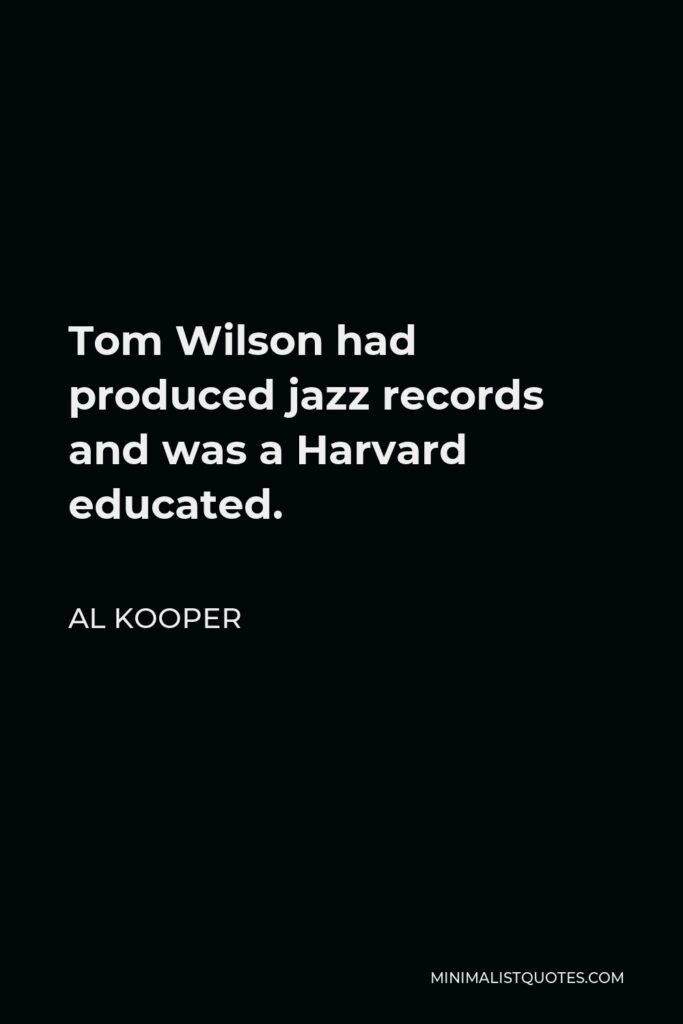

Tom Wilson had produced jazz records and was a Harvard educated.
AL KOOPER -





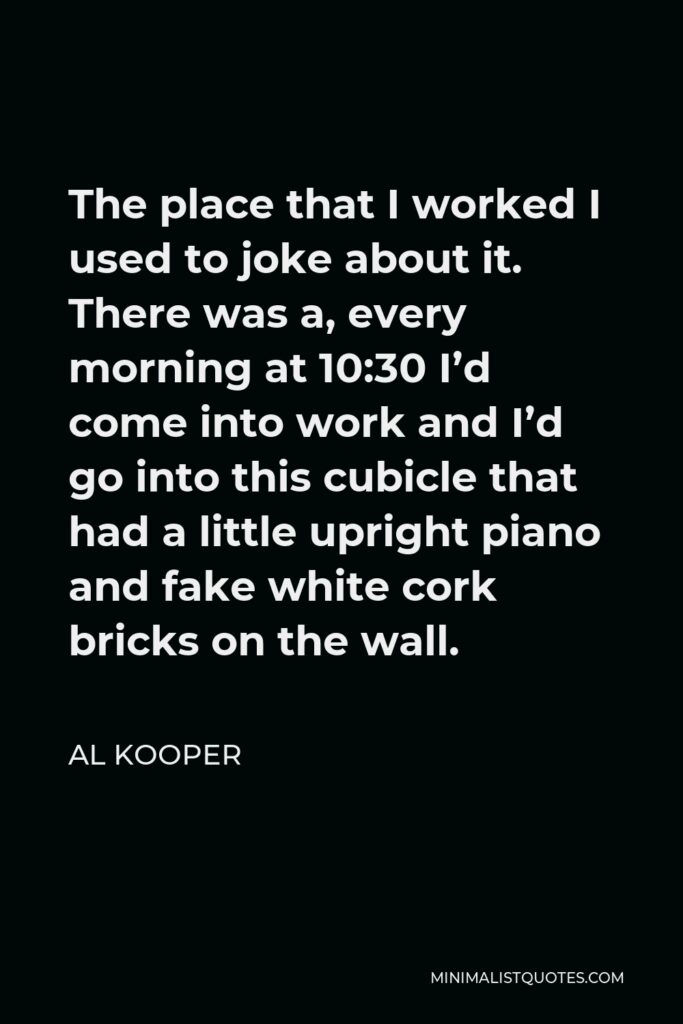

The place that I worked I used to joke about it. There was a, every morning at 10:30 I’d come into work and I’d go into this cubicle that had a little upright piano and fake white cork bricks on the wall.
AL KOOPER -





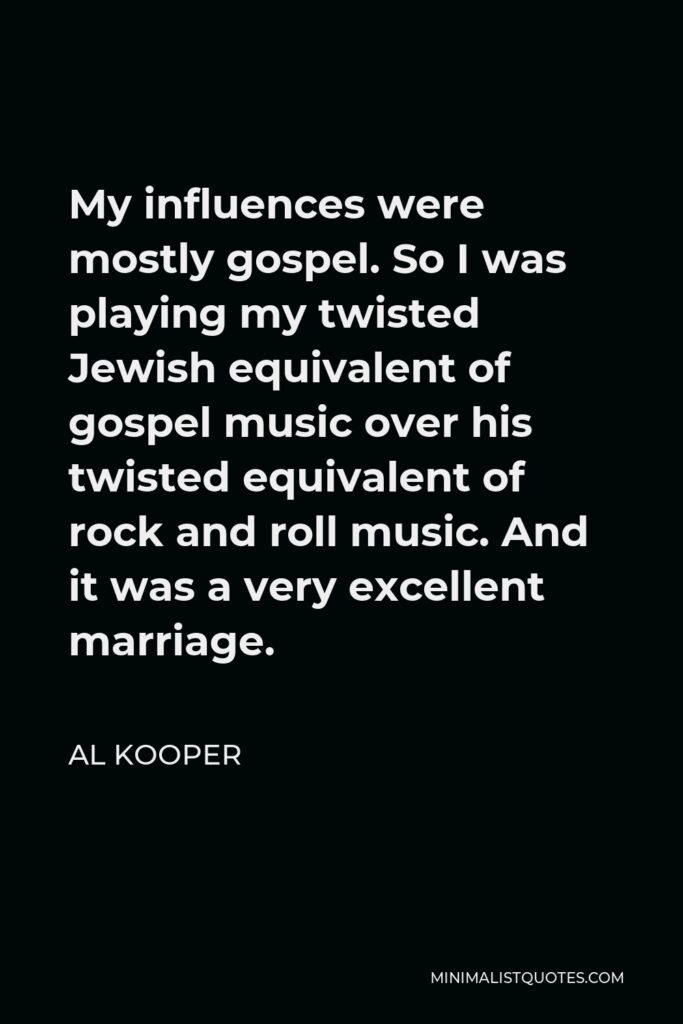

My influences were mostly gospel. So I was playing my twisted Jewish equivalent of gospel music over his twisted equivalent of rock and roll music. And it was a very excellent marriage.
AL KOOPER -







Bob Dylan said to the producer, turn up the organ. And Tom Wilson said, oh man, that guy’s not an organ player. And Dylan said.
AL KOOPER -





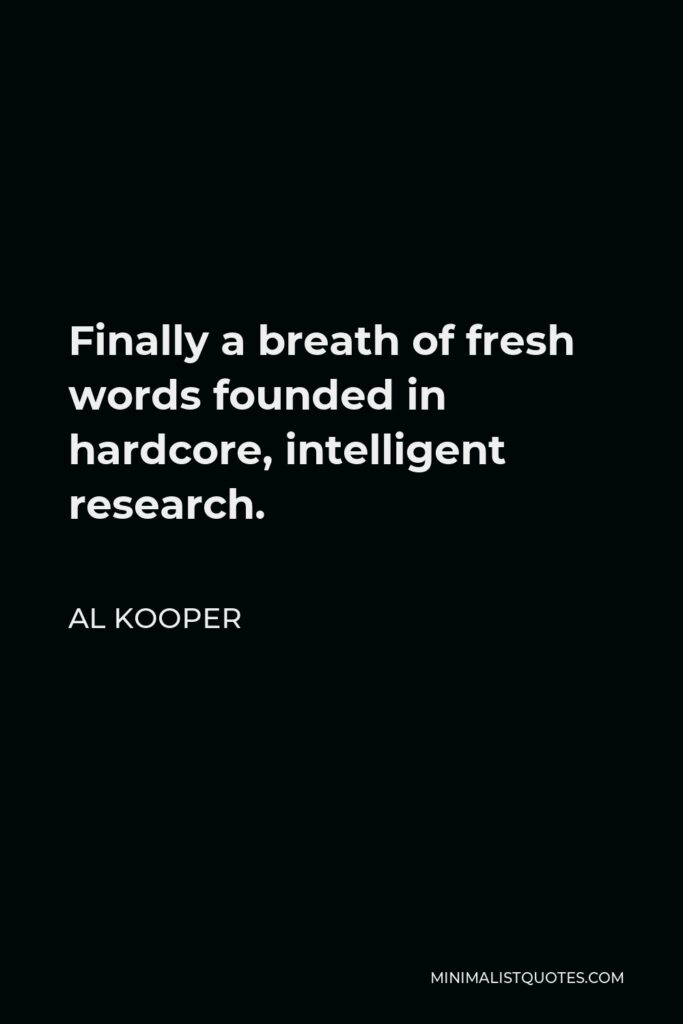

Finally a breath of fresh words founded in hardcore, intelligent research.
AL KOOPER -





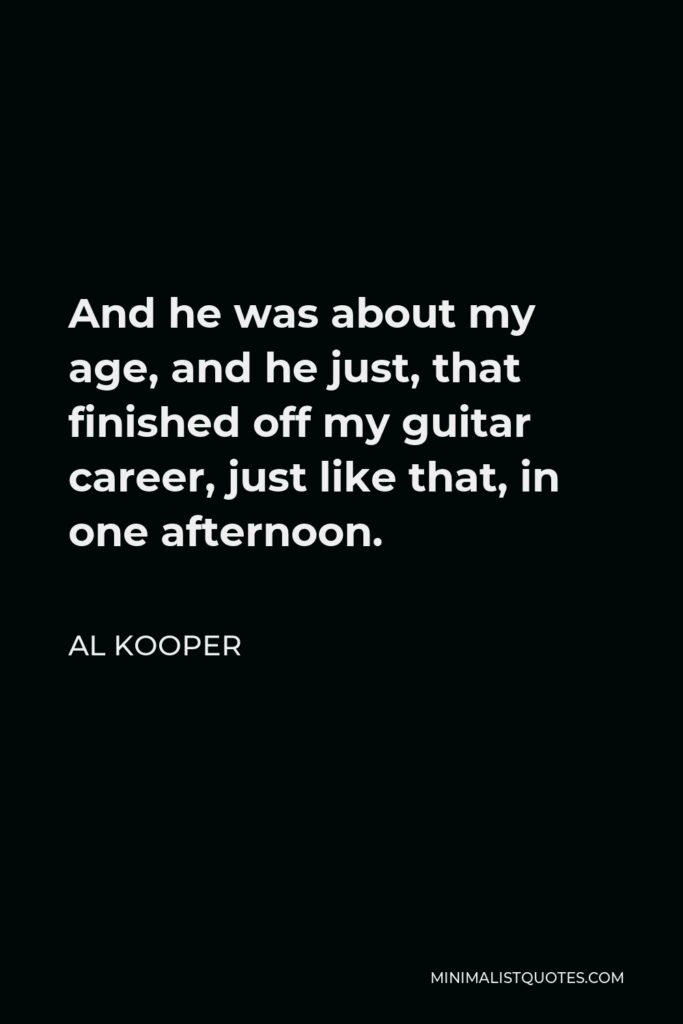

And he was about my age, and he just, that finished off my guitar career, just like that, in one afternoon.
AL KOOPER -





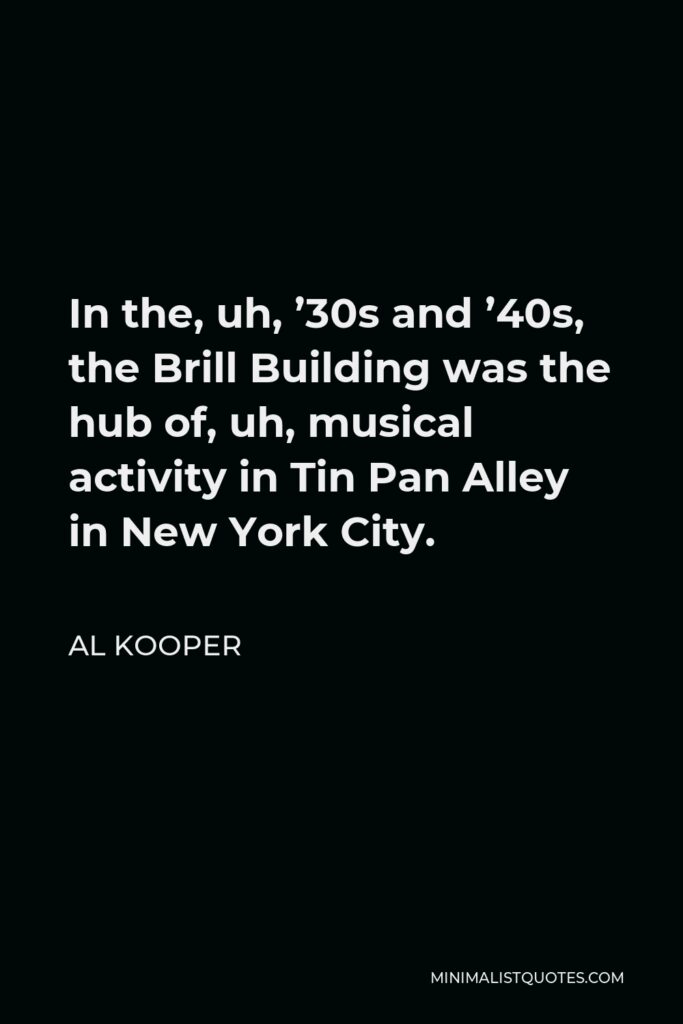

In the, uh, ’30s and ’40s, the Brill Building was the hub of, uh, musical activity in Tin Pan Alley in New York City.
AL KOOPER -





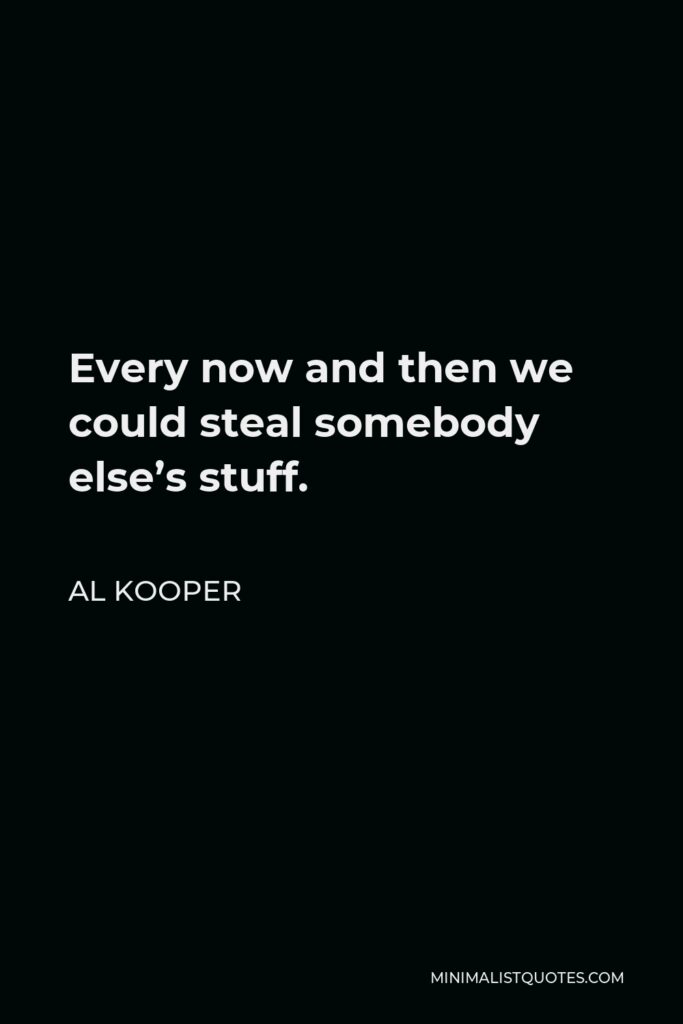

Every now and then we could steal somebody else’s stuff.
AL KOOPER -





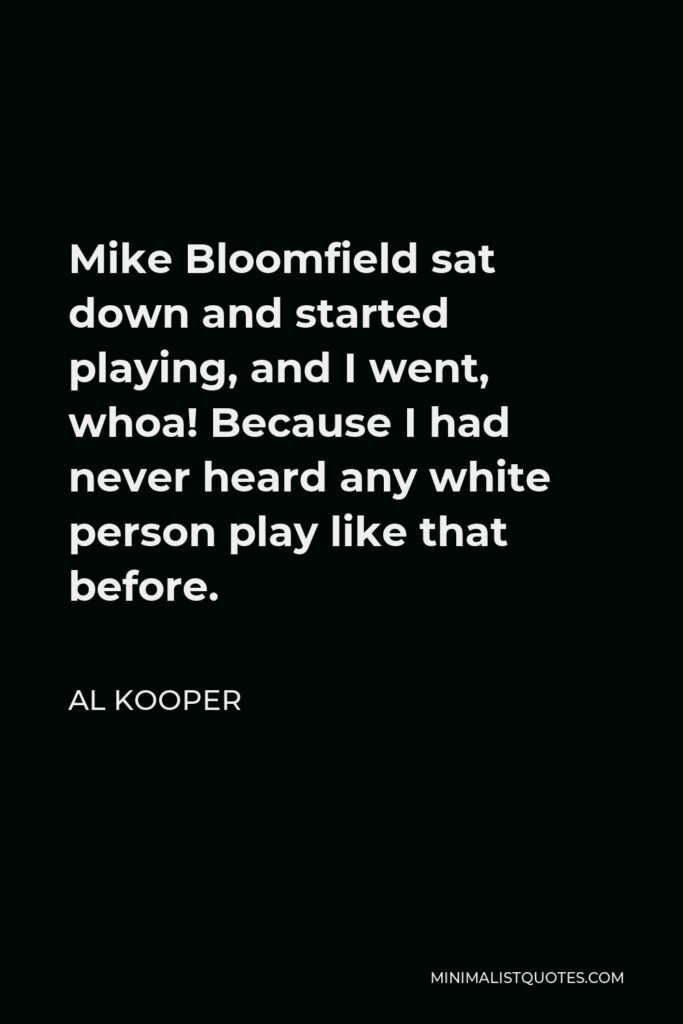

Mike Bloomfield sat down and started playing, and I went, whoa! Because I had never heard any white person play like that before.
AL KOOPER
![Al Kooper Quote - The first generation from the ’50s that were in 1650 [Broadway] were pretty much all crooks,](https://minimalistquotes.com/wp-content/uploads/2022/07/the-first-generation-from-the-50s-that-were-in-165.jpg)
![Al Kooper Quote - The first generation from the ’50s that were in 1650 [Broadway] were pretty much all crooks,](https://minimalistquotes.com/images/grey-the-first-generation-from-the-50s-that-w.jpg)
![Al Kooper Quote - The first generation from the ’50s that were in 1650 [Broadway] were pretty much all crooks,](https://minimalistquotes.com/images/blue-the-first-generation-from-the-50s-that-w.jpg)
![Al Kooper Quote - The first generation from the ’50s that were in 1650 [Broadway] were pretty much all crooks,](https://minimalistquotes.com/images/red-the-first-generation-from-the-50s-that-w.jpg)
![Al Kooper Quote - The first generation from the ’50s that were in 1650 [Broadway] were pretty much all crooks,](https://minimalistquotes.com/images/brown-the-first-generation-from-the-50s-that-w.jpg)
![Al Kooper Quote - The first generation from the ’50s that were in 1650 [Broadway] were pretty much all crooks,](https://minimalistquotes.com/images/white-the-first-generation-from-the-50s-that-w.jpg)

